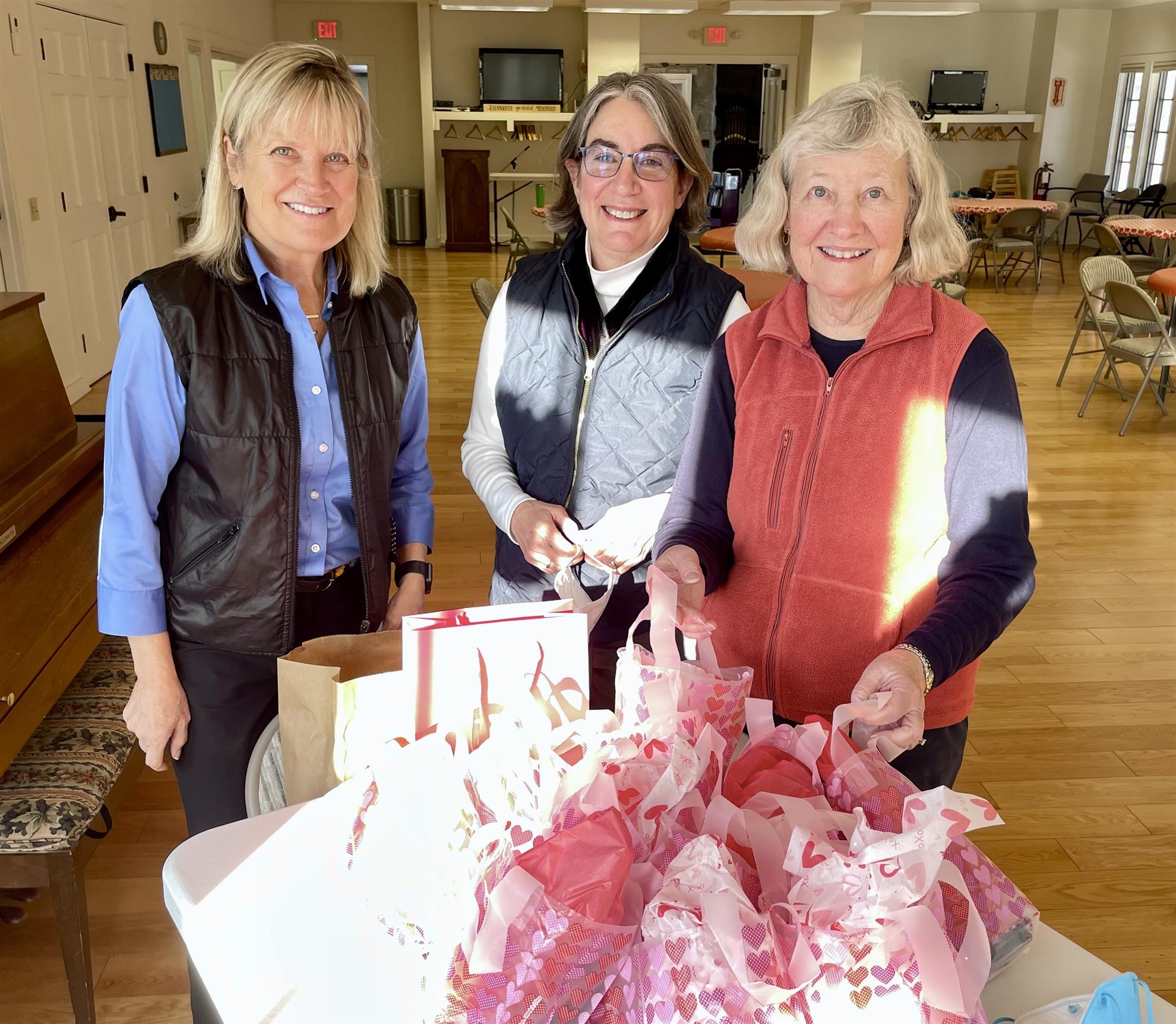 This morning we learned about hemp and cannabis farming from Stephanie Smith of the VT Department of Agriculture.
This morning we learned about hemp and cannabis farming from Stephanie Smith of the VT Department of Agriculture. Susan, Nancy, and Linda prepare gift bags for newly arrived Afghan families.
Susan, Nancy, and Linda prepare gift bags for newly arrived Afghan families. Stephanie Smith, Assistant Director for The Vermont Agency of Agriculture.
Susan called the meeting to order at 7:30.
Linda Gilbert shared opening words.
Dan York shared a description of curling in the spirit of the Olympics while watching a live feed from the Olympics!
Susan welcomed Stephanie Smith, our speaker today, who will talk about her work with the Hemp Program through the State of Vermont.
Race volunteers are needed for February 12th, 26th and March 13 with RaceVermont.
After the meeting today, volunteers will assemble Valentine gift bags for the Afghan refugees that Susan and Linda Barker will deliver Thursday. These bags will include the Hannaford gift cards and a Rotary welcome card and other small gifts.
Linda Gilbert is headed to Honduras Saturday February 12. She will update us upon her return.
Dennis collected the happy fines.
Denis Barton introduced Stephanie Smith.
Stephanie graduated from Boston University and a Landscape degree from University of Georgia.
Stephanie is the Assistant Director of the Hemp Program and Cannabis Quality Control Program. She develops and supports program and policy on production of hemp in Vermont.
Stephanie shared that the 2018 federal Farm Bill allowed states to legally cultivate hemp.
Hemp is used to manufacture textiles, in medicines(the medicinal portion of the plant is in the cannabinoids), bedding for horses, food and drinks as well as beauty and wellness products. It is healthy for our bodies, has high protein and is very versatile.
Once the Farm bill was passed in 2018, registration with the State of Vermont’s Hemp program began, with 2019 seeing the greatest registrations of growers. 2022 is the first year the 2018 farm bill goes into effect and changes in Vermont will lead to fewer registrations. This is because compliance and testing now have tougher standards.
Stephanie shared a few Vermont statistics. In 2021 there were nine registered processors and eleven registered growers. As of right now, there are ten acres in our across Charlotte, Shelburne and Hinesburg that have registered processors or growers. The largest number of growers are in Rutland and the Northeast Kingdom.
Registrants are required to have an FBI background check with fingerprinting. The applicant cannot have had and felony convictions in the past ten years.
Her Agency also operates as consumer protection. The guidelines are strict and in Vermont, 95% of the crops have met federal standard guidelines. Testing is very critical to meet the standards, results have to be reported to the U.S. Dept of Agriculture. The U.S.D.A also offers grants and other monies to farmers who demonstrate proper growing habits and products. Finally, the banking industry still struggles with financing hemp growers.
Jim presented Stephanie with the book “The Great Book of Hemp” by Rowan Robinson to the Charlotte Library.
Susan adjourned the meeting at 8:30.